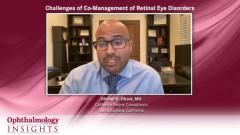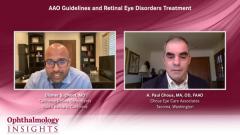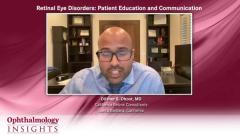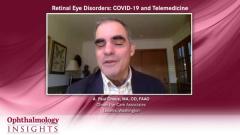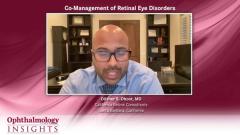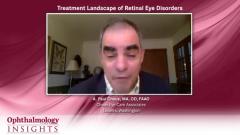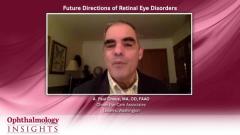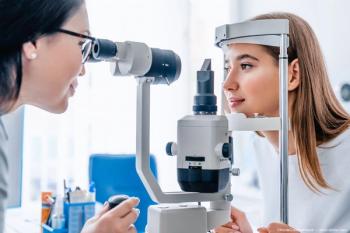
Barriers to Co-Management of Retinal Eye Disorders
Key opinion leaders discuss the barriers to co-management of retinal eye disease.
Episodes in this series

A. Paul Chous, MA, OD, FAAO: What are the biggest barriers to successful comanagement or collaboration between our professions?
Dilsher S. Dhoot, MD:It has to be poor communication. We talked a lot about communication, but if there’s not a good channel for communication, it can result in a less rewarding experience in comanagement. Having a clear referral reason, even if it’s incorrect, it’s nice to know why the patient is being sent. Having good communication back and forth. Sometimes there are expectations about when the patient should be seen, and there may be differences of opinion. I’ve noticed that some of my optometry colleagues will want patients seen before the dilation “wears off.” Sometimes that may not be necessary, and there can be some friction in that type of a relationship.
Understanding the pathology and the timelines regarding the pathology are helpful. In general, the relationship is very rewarding. You’ll generally find a retina specialist who you jibe with and usually a retina practice that has several retina doctors. We’ll refer to the whole practice, and whoever is available will see the patient, but it may be just 1 doctor who you jibe with. We try to refer to the practice as a whole, but for the patient it’s great to have this relationship. It can be very rewarding.
A. Paul Chous, MA, OD, FAAO:Are there specific things that you want in a referral every time? I’m assuming intraocular pressure, the patient’s best-corrected visual acuity, and some tentative diagnosis. Those would be fundamental. And then something about patients, maybe systemic history, that might have relevance to whatever the retinal disorder is, right?
Dilsher S. Dhoot, MD:Yeah, it’s tentative diagnosis. If there’s a nuanced question that wants to be answered, that’s nice to know. If the diagnosis is retinal whole, it’s great to get a clock hour. Sometimes you can search, and it may not even be there. It may be some pigment spot. We want to make sure we’re all on the same page. I always encourage clock hours if it’s not an obvious giant retinal tear. Ultimately, the communication is usually very good, and the patient education is great. A lot of times we’ll have patients who know what’s going on already. If you don’t have a note you can say, “What did Dr Chous tell you?” A lot of times, patients can relay that to you easily. But it’s great to have a note too.
A. Paul Chous, MA, OD, FAAO:How about imaging? Do you want serial imaging to see progression of the disease? Is that useful when we’re making referrals to you?
Dilsher S. Dhoot, MD: It’s not generally useful because we have our own machines and our own way of lining up the images so we can compare over time. For us, [we use] our imaging unless something has evolved by the time the patient gets in—then it’s very helpful. For example, at the EMT [epithelial-mesenchymal transition], or if a macular hole evolved, it would be nice to see. Or say you’ve been following a nevus for years, and now you think something has changed. You can show me the image from 10 years ago, and I can look at it. That type of thing is very helpful. Other than baseline-type images, if I’m seeing the patient very closely there afterwards, the imaging is less helpful, but there are certain nuances and circumstances in which it is.
TRANSCRIPT EDITED FOR CLARITY
Newsletter
Don’t miss out—get Ophthalmology Times updates on the latest clinical advancements and expert interviews, straight to your inbox.


